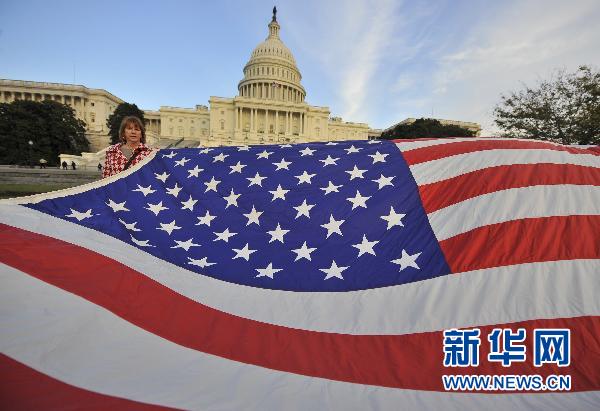


The Broadcasting Board of Governors (BBG) is one of the largest media organizations in the world. The agency is also at the forefront of U.S. government efforts to promote American propaganda. Despite’s U.S. President Donald Trump’s promise not to impose America’s way of life on others, the latest BBG budget shows that the U.S. government remains strongly committed to using American power to interfere in the internal affairs of countries that do not share American values.
In the latest budget request, the BBG is requesting $5 million to “rebalance content and programming for Asia,” and the Voice of America (VOA) will maintain Mandarin as a priority and resources will be shifted toward next generation digital/social media content and technology. VOA Mandarin will launch an Internet-delivered 24/7 video news stream to China to provide “a fact-based alternative to domestic media propaganda about the U.S.” Furthermore, VOA will distribute a circumvention app to deliver its propaganda.
This “soft power pivot” is in addition to various other efforts over the years by the American propaganda outlet to spread American values and sow divisions, and its role seems to echo that of the former U.S Information Agency, which was designed solely to influence foreign audiences.
Increasingly, the BBG is focusing on social media to target youth audiences, who will become decision makers in the future. Over the years, VOA Mandarin has greatly increased social media accounts inside China, and QR code links with proxies have been used by the agency to improve access to certain reports. In addition, VOA Mandarin uses WeChat, China’s largest social media platform, as well as English learning programs, to increase social media engagement.
These methods have been successful, at least according to the BBG. In the most recent budget request, the BBG said that VOA and Radio Free Asia (RFA) used domestic social media connections, including the public WeChat messaging service, to “get reporting tips, ask questions, and provide content links.” The BBG also said that VOA Tibetan capitalized on the growing use of virtual private networks and other circumvention tools to reach audiences within Tibet. For example, VOA Tibetan leveraged the method that VOA Mandarin pioneered to crack Chinese restrictions and link to the VOA Tibetan website with a QR code that mobile phones can scan.
China’s Xinjiang Uyghur Autonomous Region has also been the target of the agency over the years. In 2014, China was rocked by a series of violent terrorist attacks, including the May 22 car bombing of an outdoor market in the capital Urumqi. In response to the increased violence in China’s Xinjiang, the BBG expanded RFA’s Uyghur Service in the region, as well as RFA’s Cantonese and Mandarin Services, to challenge China’s domestic policies rather than the extremists who carried out the attacks.
As such continuous efforts show, the U.S. has yet to fully discard its zero-sum Cold War mentality. In a changing world order, the U.S. should give up its longstanding love affair with imposing American values on countries that do not share American values, because using American power to influence foreign audiences does nothing to enhance America’s value in the world. Even though America’s soft power is on the wane, America’s “soft power pivot” is not the wisest path forward. The BBG and the Cold War relics that fall under its purview should be consigned to the dustbin of history.
 Fire brigade in Shanghai holds group wedding
Fire brigade in Shanghai holds group wedding Tourists enjoy ice sculptures in Datan Town, north China
Tourists enjoy ice sculptures in Datan Town, north China Sunset scenery of Dayan Pagoda in Xi'an
Sunset scenery of Dayan Pagoda in Xi'an Tourists have fun at scenic spot in Nanlong Town, NW China
Tourists have fun at scenic spot in Nanlong Town, NW China Harbin attracts tourists by making best use of ice in winter
Harbin attracts tourists by making best use of ice in winter In pics: FIS Alpine Ski Women's World Cup Slalom
In pics: FIS Alpine Ski Women's World Cup Slalom Black-necked cranes rest at reservoir in Lhunzhub County, Lhasa
Black-necked cranes rest at reservoir in Lhunzhub County, Lhasa China's FAST telescope will be available to foreign scientists in April
China's FAST telescope will be available to foreign scientists in April "She power" plays indispensable role in poverty alleviation
"She power" plays indispensable role in poverty alleviation Top 10 world news events of People's Daily in 2020
Top 10 world news events of People's Daily in 2020 Top 10 China news events of People's Daily in 2020
Top 10 China news events of People's Daily in 2020 Top 10 media buzzwords of 2020
Top 10 media buzzwords of 2020 Year-ender:10 major tourism stories of 2020
Year-ender:10 major tourism stories of 2020 No interference in Venezuelan issues
No interference in Venezuelan issues
 Biz prepares for trade spat
Biz prepares for trade spat
 Broadcasting Continent
Broadcasting Continent Australia wins Chinese CEOs as US loses
Australia wins Chinese CEOs as US loses